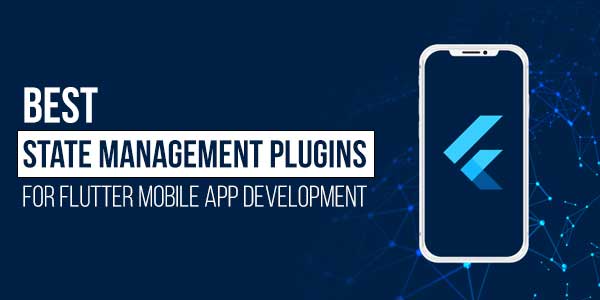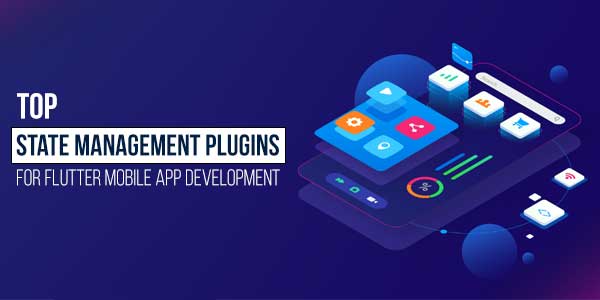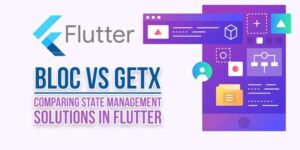
In the realm of mobile app development, selecting the appropriate state management plugin holds substantial influence over the efficiency and performance of your project. Flutter, a widely favored hybrid framework for mobile app development, offers a wide array of state management options. In this article, we will delve into the finest state management plugins for Flutter mobile app development.
Table of Contents
State Management And Its Significance:
State management entails how an app manages and maintains its data and UI components. It plays a crucial role in ensuring that your app remains responsive, scalable, and efficient. Choosing the right state management plugin can make a significant difference in the development process and the overall user experience of your app.
Framework Architecture And State Management:
The choice of state management plugin is often contingent on the architectural pattern you adhere to in your app development. Flutter supports various architectural patterns, including MVC (Model-View-Controller), MVP (Model-View-Presenter), MVVM (Model-View-ViewModel), and more. Each pattern encompasses its own set of benefits and considerations when it comes to state management.

Greatest State Management Plugins For Flutter Mobile App Development:
- Provider: The Provider package stands as a highly favored option for state management in Flutter. It provides a straightforward and user-friendly solution for managing the state via a provider/consumer model. With Provider, you can effortlessly handle state across widgets and efficiently update UI elements when the state changes.
- BLoC (Business Logic Component): BLoC serves as another esteemed state management pattern in Flutter. It segregates the business logic from the UI components, facilitating easier testing and maintenance of your code. Flutter offers the flutter_bloc package, which simplifies BLoC pattern implementation by offering features such as event handling and state management.
- MobX: MobX represents a potent state management library that leverages observables and reaction mechanisms. It enables the development of reactive applications by automatically tracking and updating UI components whenever the underlying observables change. MobX emphasizes a declarative approach to state management, making it easier to manage intricate app logic.
- Redux: Redux, widely used in web development, has been adapted for Flutter as well. It adheres to a unidirectional data flow architecture, simplifying change tracking and the maintenance of a consistent state. The flutter_redux package furnishes the requisite tools to implement Redux in Flutter apps.
- Riverpod: Riverpod is a lightweight state management solution that offers a more intuitive API compared to Provider. It allows for effortless creation and management of the state, making it a popular choice among Flutter developers. Riverpod also provides dependency injection capabilities, facilitating simpler management and sharing of state.
Selecting the Appropriate State Management Plugin:
When choosing a state management plugin for your Flutter app, consider the following factors:
- Complexity: Opt for a plugin that aligns with the complexity of your project. Certain plugins may be more suitable for enterprise-level apps, while others may be better suited for smaller projects.
- Performance: Consider the performance implications of the selected state management plugin. Some plugins may introduce overhead that can impact the app’s responsiveness and speed.
- Community Support: Seek plugins with an active and supportive community. This ensures continuous development, bug fixes, and a helpful support network.
- Integration: Evaluate how easily the chosen plugin integrates with other essential libraries and packages you may be utilizing in your project.
Conclusion:
State management constitutes a critical aspect of mobile app development, and selecting the right plugin can profoundly impact the success of your project. We have explored some of the finest state management plugins available for Flutter and discussed their features and benefits. Take into account the requirements of your project and the architectural pattern you are implementing to make an informed decision. Remember, the correct state management plugin can streamline your development process and create a seamless and efficient user experience in your Flutter mobile app.














Be the first to write a comment.